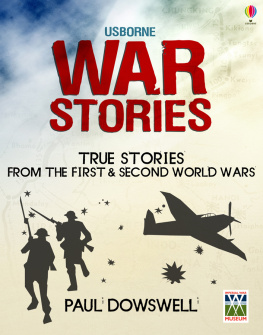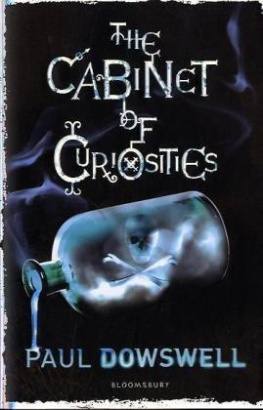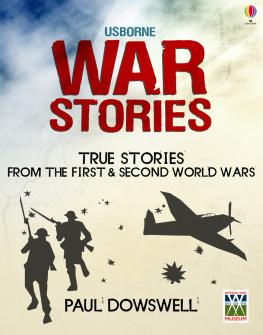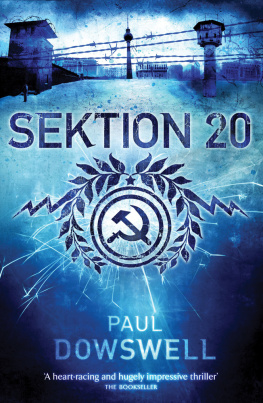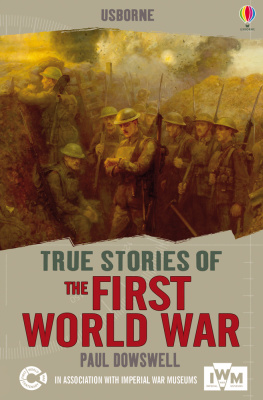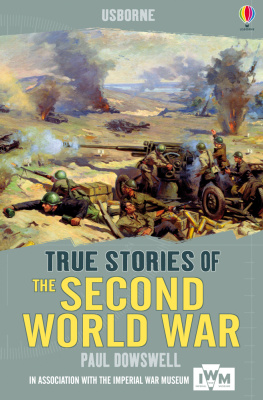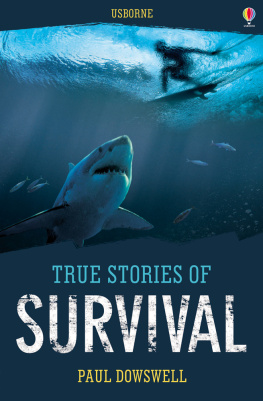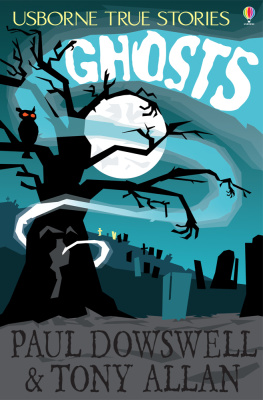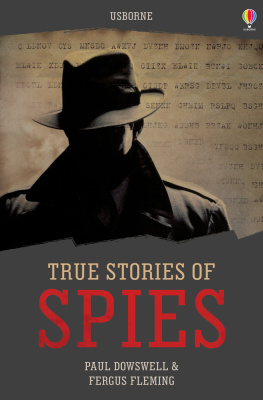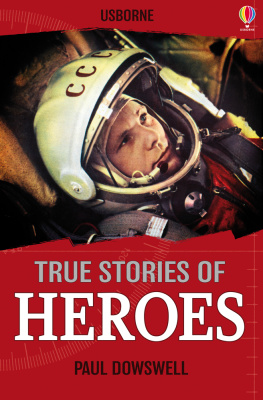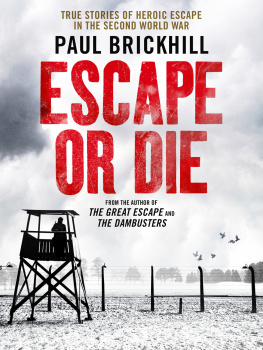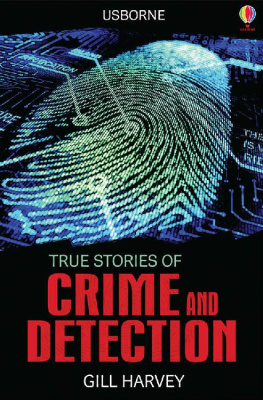Paul Dowswell - Usborne True Stories: War Stories
Here you can read online Paul Dowswell - Usborne True Stories: War Stories full text of the book (entire story) in english for free. Download pdf and epub, get meaning, cover and reviews about this ebook. publisher: Usborne Publishing Ltd, genre: History. Description of the work, (preface) as well as reviews are available. Best literature library LitArk.com created for fans of good reading and offers a wide selection of genres:
Romance novel
Science fiction
Adventure
Detective
Science
History
Home and family
Prose
Art
Politics
Computer
Non-fiction
Religion
Business
Children
Humor
Choose a favorite category and find really read worthwhile books. Enjoy immersion in the world of imagination, feel the emotions of the characters or learn something new for yourself, make an fascinating discovery.
- Book:Usborne True Stories: War Stories
- Author:
- Publisher:Usborne Publishing Ltd
- Genre:
- Rating:5 / 5
- Favourites:Add to favourites
- Your mark:
- 100
- 1
- 2
- 3
- 4
- 5
Usborne True Stories: War Stories: summary, description and annotation
We offer to read an annotation, description, summary or preface (depends on what the author of the book "Usborne True Stories: War Stories" wrote himself). If you haven't found the necessary information about the book — write in the comments, we will try to find it.
Usborne True Stories: War Stories — read online for free the complete book (whole text) full work
Below is the text of the book, divided by pages. System saving the place of the last page read, allows you to conveniently read the book "Usborne True Stories: War Stories" online for free, without having to search again every time where you left off. Put a bookmark, and you can go to the page where you finished reading at any time.
Font size:
Interval:
Bookmark:

The 20th century was ravaged by two of the most devastating conflicts in history: the First and Second World Wars. The slaughter and destruction was on such a massive scale it still haunts us today. From zeppelin raids, trench warfare, spies and secret plots, to epic encounters between colossal warships, this book contains a collection of dramatic and unforgettable tales.
This is a truly moving collection of talesit brings history alive with real heroes. - tBk Magazine


The flimsy biplanes, stubby tanks and cavalry officers on horseback of the First World War now seem part of a distant age, like Montgolfiers gaudy hot air balloons and the mighty wooden men o war of Napoleonic times. But there are still a handful of men alive today who fought in that war. In fact, the last survivor of the 1914 Christmas truce only died in 2005, a sprightly 109 year old, still willing to reminisce for documentary film-makers about the events of that extraordinary day. Like many other veterans of both world wars, he found it difficult to talk about what had happened to him. Even 90 years on, the memory of the young men who died beside him in France and Belgium moved him to tears.
There are still millions of people alive who lived today through the Second World War. Many grandparents even remember it vividly. Its technology may seem quaint now, but that war introduced the world to computers, jet planes, penicillin, space rockets and nuclear weapons. The end of the war, with its fearful standoff between the western democracies and the Soviet Union, has shaped the history of the world to this day.
The casualties of the two wars are so immense (at least 76 million dead) it is easy to forget the individuals who were caught up in these conflicts. Most were former civilians farm and factory hands, civil servants, teachers plucked from their everyday lives and plunged into a terrifying and often lethal ordeal. The wars were on too great a scale to be fought merely by professional standing armies.
Even those that stayed at home were caught up in the Second World War, like no other conflict in history. It was not just the luckless populations of the battle zones, stranded in the scorched earth between advancing and retreating armies. The citizens of London and Hiroshima saw their cities devastated or destroyed by bombers which had flown hundreds or thousands of miles from enemy territory to attack them.
Many of the episodes in this book tell the stories of ordinary men and women soldiers, sailors, aircrew caught up in the tide of great battles or campaigns. Some of the stories are about spies men and women of extraordinary courage who ventured into enemy territory in the certain knowledge that they would be killed if captured.
Even those who survived with no obvious physical or psychological damage were tormented by what they had seen and done. One British veteran of the First World War recalled:
Us fellows, it took us years to get over it. Years! Long after when you were working, married, had kids, youd be lying in bed with your wife and youd see it all before you. Couldnt sleep. Couldnt lie still. Manys the time Ive got up and tramped the streets till it came daylight And manys the time Ive met other fellows that were out there doing exactly the same thing. Went on for years that did.
For those that fought in them, the two world wars remained the most intense and vivid experiences of their lives.
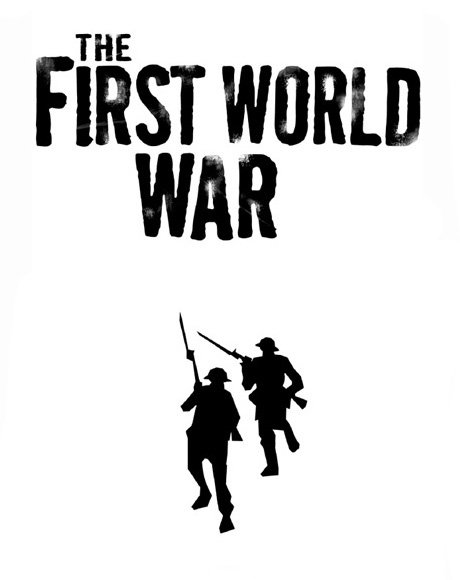
1914
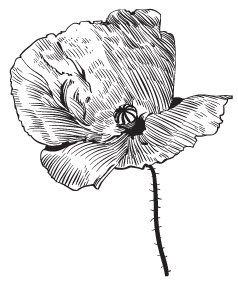
In the first four days of August 1914, the worlds most powerful nations declared war on each other. They lined up in two opposing camps. On one side was Germany and Austria-Hungary, who were known as the Central Powers. On the other was Britain and France, together with their empires, and Russia. They were known as the Allies. In the course of the war, other nations would be drawn into the conflict, too. The Ottoman empire and Bulgaria joined the Central Powers. Italy, Romania, Japan and China joined the Allies. So did the United States, despite the initial reluctance of a great many of its people. It was to be the first real world war in that it involved countries from every inhabited continent although most of the fighting took place on what became known as the Western and Eastern fronts, on either side of Germany.
As news of the outbreak of war spread, crowds began to gather in the hot summer sunshine, congregating in the great squares and parks of Europes principal cities. Far from being fearful or anxious, they were elated like football fans anticipating a closely-fought game. Each side expected a war of great marches and heroic battles, quickly decided. The German emperor, the kaiser, told his troops they would be home before the leaves fell from the trees. The British were not so optimistic, although it was frequently claimed that the war would be over by Christmas. Only a few far-sighted politicians realized what was coming, including the British foreign secretary, Sir Edward Grey.
Watching the dusk from his window on August 4, the day Britain declared war on Germany, Sir Edward sighed: The lamps are going out all over Europe; we shall not see them lit again in our lifetime. His melancholy remark had a deep resonance, for the world would never be the same. Grey and his fellow citizens were living in a strong and prosperous country, with a vast empire. The war would provide a rude awakening to the grimier reality of the 20th century, completely undermining Britains position as the worlds most powerful nation.
Almost all the other participants in the war suffered a similar reversal of fortune, or worse. In France, half of all men aged between 20 and 35 were killed or badly wounded; its eminent position in the world would never recover. The Austro-Hungarian empire collapsed, with repercussions that can still be seen in the squabbling Balkan nations of today. The Germans ended the war on the brink of a communist revolution, and lost their own monarchy. The war swept away the Russian monarchy too, then brought the communist Bolsheviks to power. With them came 70 years of brutal, totalitarian oppression. Like many countries in Eastern Europe, the Russians have never really recovered from the First World War, and its awful consequences. Only the United States did well out of it. By 1919, it had become the richest, most powerful nation on Earth, and was set to dominate the 20th century.
Quite apart from its consequences, there is something uniquely haunting about the First World War. The Second World War was far worse in terms of its cost in human life: it claimed over four times as many victims. It was also fought with much greater brutality, and came with such horrors as the Holocaust and the mass destruction of cities by aerial bombardment. But it did end with the overthrow of two undoubtedly evil regimes Nazi Germany and Imperial Japan and a peace which lasted for the rest of the century. The First World War, for all its terrible cost, produced no positive results at all.
Font size:
Interval:
Bookmark:
Similar books «Usborne True Stories: War Stories»
Look at similar books to Usborne True Stories: War Stories. We have selected literature similar in name and meaning in the hope of providing readers with more options to find new, interesting, not yet read works.
Discussion, reviews of the book Usborne True Stories: War Stories and just readers' own opinions. Leave your comments, write what you think about the work, its meaning or the main characters. Specify what exactly you liked and what you didn't like, and why you think so.

